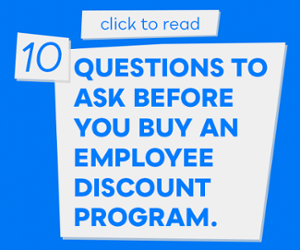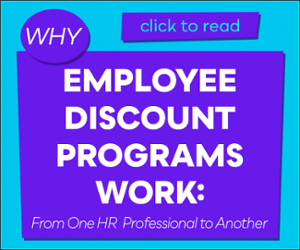Full confession: when I came to work at Access Development nearly seven years ago, I was kind of a sad dude.
I was overweight, always tired, and constantly grumpy. My previous employer may not have been responsible for all of those, but they certainly weren’t doing anything to help.

In other words, “health and wellness” was something employees did on their own time. It wasn’t part of the corporate culture.
Back then, I thought that was okay. Yeah, work stunk, but my health and wellness is my responsibility.
That’s still 100% true for me and everyone else. Ultimately, it’s my own fault I was overweight and grumpy.
But…
In retrospect, my company could have done more to put me in position to improve my life - and accelerated my value as an employee, as a result.
Not Investing in Health and Wellness is Costing Companies Tons of Money
Not taking a more proactive approach to the health of me and my coworkers is hurting that company in ways that outnumber the dollars they’re saving by not having a healthy culture.
Many (most?) companies have come around to the notion that healthier employees are one of the best assets a company can have.
70% of employers are investing in wellness programs (United Healthcare)
Why this sudden shift? Why has employee health and wellness suddenly become something employers are investing in?
Why Health and Wellness Benefits are Your Best Investment
 Here’s a hint: companies making investments in employee happiness and health aren’t just doing it to be nice, or to be a parent to employees unwilling to help themselves. They’re also not just gunning for “best places to work” awards, though that’s a nice side benefit.
Here’s a hint: companies making investments in employee happiness and health aren’t just doing it to be nice, or to be a parent to employees unwilling to help themselves. They’re also not just gunning for “best places to work” awards, though that’s a nice side benefit.
No, they’re doing it because there are significant returns on healthier employees. Primarily in three areas:
- Productivity
Obviously, healthier employees aren’t going to miss as much work. Even better, the work they produce when on the clock will be of a higher quality.
With less things to worry about, physically and mentally, employees are freed to do their best work.
83% of employers found financial well-being benefits improved performance and productivity among their employees, while 81% saw an improvement in employee morale (Xerox)
- Lower Costs
Healthier employees can lower your health premiums, sure. That’s just the tip of the iceberg here.
As mentioned above, healthier employees will miss less work, and their efforts will improve. As their work improves and your company recognizes them for their efforts, they’ll stay longer and become more satisfied with the company. That means they’ll refer friends to come work with them.
Among employers offering and measuring their wellness efforts, 50% have found a decrease in absenteeism, 63% are experiencing financial sustainability and growth, and 67% said employees are more satisfied (IFEBP)
- Happiness
Employees are spending literally half their waking hours with you. Like it or not, your company bears a lot of responsibility in each person’s overall happiness. Their health, their wealth, their relationships, their ability to reach their goals and dreams - the company has a significant stake in all of these things.
You’re not running a daycare, of course. You’re not 100% responsible for their happiness, but you sure can make a big difference - and experience a big return:
Employers are losing an estimated $225.8 billion each year due to stress, anxiety, depression and substance abuse contributing to high turnover, burnout, exhaustion and decreased motivations (Mental Health America)
What Works in Real Life Works at Work
 Thinking tactically, it makes sense to dump a bunch of money into hiring to solve your employee issues. Strategically, however, it makes more sense to focus on engaging and developing the people within your office. That means investing in well being as much as any other benefit, if not moreso.
Thinking tactically, it makes sense to dump a bunch of money into hiring to solve your employee issues. Strategically, however, it makes more sense to focus on engaging and developing the people within your office. That means investing in well being as much as any other benefit, if not moreso.
I’m an example of how it works.
Flash forward seven years. I’m at a company that gives me permission to be healthy and happy, and I’m cranking out a ton of work for them.
I can adjust my job to fit my personal life. I can ride my bike in and store it in our warehouse. I have time to go out and run or swim during lunch, plus a shower so I don’t stink up the office. There’s yoga here, healthy snacks, and groups of people that go out walking. Flu shot clinics and 5Ks. I’m not a pariah if I choose to bring lunch from home instead of going out.
And every day around 5pm, the office empties out, and team Access goes back home, or wherever they feel like going, only to return the next day refreshed and ready.
I’m not forced to do any of these things, but it’s all available and encouraged. As a result, Access is a healthy company full of people who encourage each other and get along. (We’ve also won five different workplace awards in the past year, which is nice.)
Trust me, it absolutely makes a difference.





